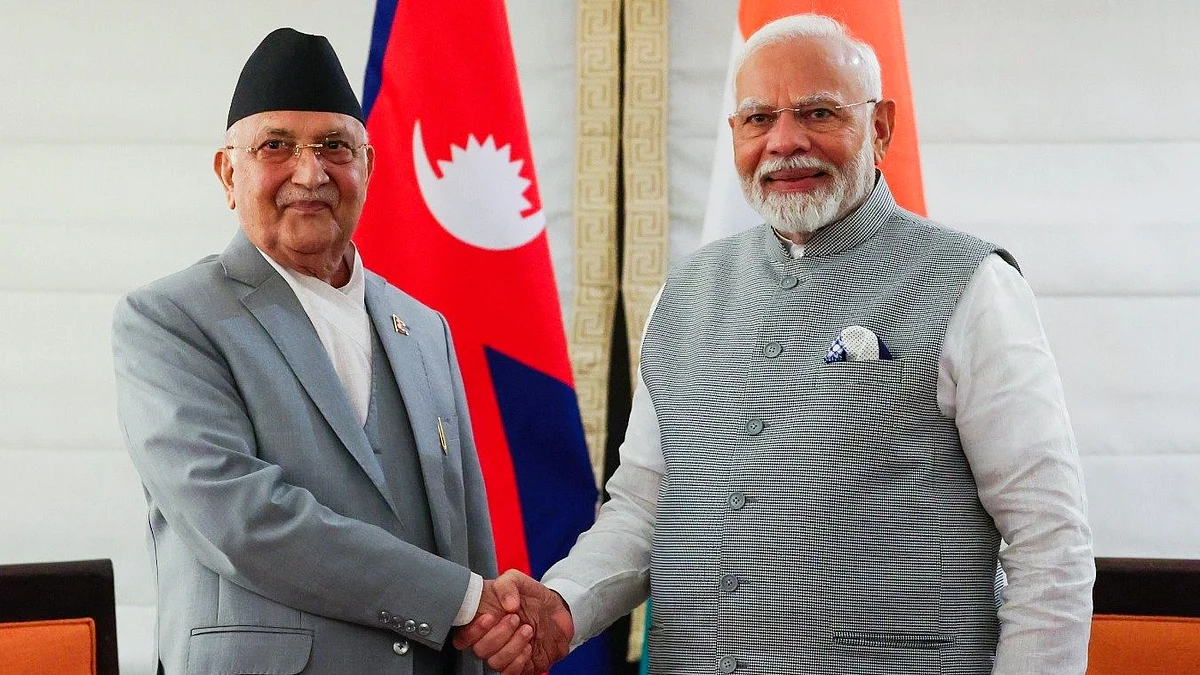Amidst rising concerns in Nepal about Army, Oli blames India for his ouster
Talks continue on forming interim government in Nepal as President Ramchandra Paudel says he is working to resolve the political crisis

According to a statement attributed to former Nepal Prime Minister K.P. Sharma Oli, Nepali media have reported that he blamed his ouster on 'saying the right things'.
“I have insisted that social media doing business in our country should follow the rules here and be listed. I have insisted that Lipulekh, Kalapani and Limpiyadhura are ours. I have insisted that Lord Shri Ram was born in Nepal and not in India as mentioned in the scriptures. Had I backed down on these insistences… I would have had many other opportunities… I would have achieved many things.
"If the map of Nepal including Limpiyadhura had not been sent to the United Nations or if others had let me do as I wanted, my life would have taken a different turn,” the statement reportedly read.
The authenticity of the statement remains in doubt, though it claims that the former PM is with Army officers at Shivpuri, close to Kathmandu.
Meanwhile, there is rising concern in Nepal about the role of the Army and Army chief Ashokraj Sigdel. Questioning the Army's role in negotiating a transition after Oli was forced to resign and most prominent political leaders fled Kathmandu, sections of Generation Z, members of civil society and journalists appealed to President Ramchandra Paudel to take the lead in forming an interim government.
Three names doing the rounds to head the interim government as of Thursday evening are former Supreme Court chief justice Sushila Karki, mayor of Kathmandu Balendra Shah, and energy specialist and reformer Kulman Ghising.
Several smaller political groups objected to Karki, pointing out that Nepal’s Constitution expressly prohibits judges from holding any office post their retirement. Among Gen Z, too, there did not appear to be consensus, and pro and anti-Karki groups are said to have clashed on Thursday.
Gen Z are demanding that the interim government be constituted with new faces, with representation from Gen Z itself, and that elections be held within six months. Their core demands remain a commitment to end or curb corruption, good governance, and a commitment to Constitutional democracy. They are clearly uneasy and suspect the Army will play a decisive role in dictating the road ahead. The fact that negotiations are being held in the Army headquarters at Kathmandu has added to their unease.
Even as there was rising demand for President Paudel to address the nation and answer questions agitating the people, he opted to issue a statement on Thursday. “I appeal to all parties to be confident that efforts are underway to address the protesters’ demands swiftly and to cooperate in maintaining peace and order in a disciplined manner,” he said. He urged restraint by all sides and stressed the importance of Constitutional processes in resolving disputes.
Meanwhile, the Federation of Nepali Journalists (FNJ) warned against solutions imposed by military or non-civil authorities, The Kathmandu Post reported. In a statement released on Thursday, the FNJ stated, “All efforts to solve political problems must come from the President’s office, not military headquarters.”
Taking note of the fact that 35 people have died across the country since the youth-led protests began on Monday, the umbrella organisation of Nepali journalists, however, commended the role of the security forces in restoring order.
“The state must compensate media and journalists for the damages, and both authorities and protesters should refrain from targeting the press,” the statement said. The organisation has appealed to all stakeholders to act responsibly, exercise restraint, and respond sensitively to the structural reform demands raised by the Gen Z movement, while safeguarding the democratic republic system.
Follow us on: Facebook, Twitter, Google News, Instagram
Join our official telegram channel (@nationalherald) and stay updated with the latest headlines
